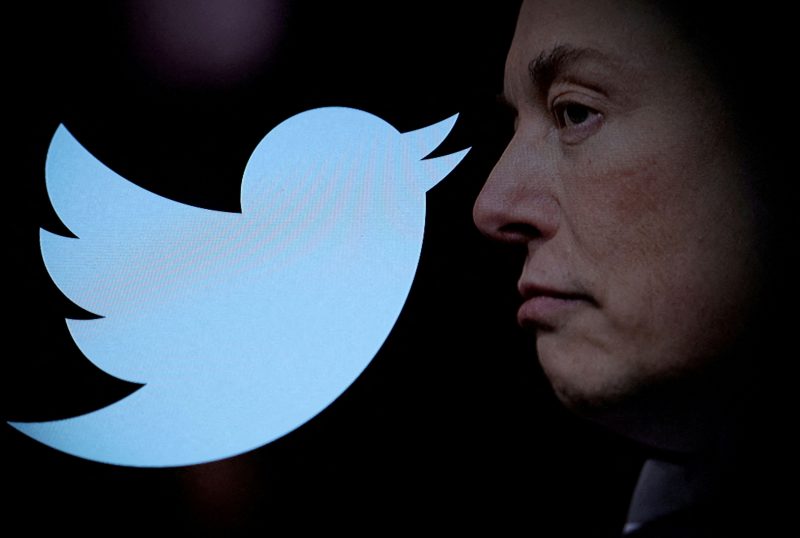On Friday, I wrote an article about the ways in which the fight over Twitter-like social-media platforms reflects the long-standing divide in American politics. The short version is that the recent fragmentation looks a lot like the fragmentation seen in the media overall, with people seeking and being granted the ability to exist in universes where unfettered speech — or, really, differently fettered speech — is granted primacy over objective, fact-checked information.
But I also noted that social media includes an element that isn’t really present in the overall media universe: pugilism.
I used the example of Fox News host Sean Hannity; he’s not clamoring for airtime on NBC News because he doesn’t need to. Yet the right is actively policing what other platforms do and don’t allow them to do. With Elon Musk’s takeover of Twitter, it ostensibly has exactly what it wants from a social-media platform — but prominent right-wing voices were still frustrated that the new competitor from Meta, Threads, was offering warnings about their sharing misinformation. Who cares? You have your Fox News!
The answer, I argued, was that the fighting was part of the appeal. A space without the left fails to fulfill one of the functions the right seeks from social media: being able to get in fights with the other side. But it wasn’t until this weekend that it struck me why.
My explanation probably derives in part from another article I wrote last week, exploring why the presidential campaign of Florida Gov. Ron DeSantis (R) shared a homophobic video comparing the candidate to both a gladiator and a serial killer. In essence, as he tries to outflank former president Donald Trump to the right, DeSantis is hoping to tap into a huge reservoir of right-wing male insecurity.
The article pointed to polling showing how those who voted for Trump in 2020 (a group that skewed toward men) were more likely to say that men faced discrimination than to say the same of women. Republicans were also 10 times as likely as Democrats to say that society had gone too far in promoting gender equality.
This idea that the right feels demographically embattled is not new. The GOP is older and straighter and Whiter than the rest of the country and reacts with hostility to ways in which it perceives that the country is changing. “Make America Great Again” is a motto that’s inherently about turning back the clock — and one that obviously refers to a halcyon period in which White men had unchallenged dominance. (I wrote about this, too.)
What Musk’s Twitter provides is a place to exert that dominance. In fact, it now seems obvious that’s why Musk bought Twitter in the first place. (In addition to getting to punish journalists.)
Over and over, we hear Musk talk about the emergence of the “woke mind virus,” a weird and silly phrase that, like anything else that includes the word “woke” these days, doesn’t have any hard-and-fast meaning. In practice, it generally just means “a thing that aims to increase the power or visibility of the left or those other than White men.” (That “the left” overlaps so heavily with non-White Americans and young people is not unimportant to all of this.) Musk, like DeSantis, is reacting to the ways in which he perceives America changing and is framing that reaction in the loaded context of “wokeism.”
So he changes how Twitter works. Those who pay for the service — in practice, mostly those who see his leadership as visionary — are elevated in the public conversation. People barred from using the platform because of abuse and misinformation were welcomed back. Again, this was framed as “free speech” on Musk’s part, but, given his willingness to accede to things such as government efforts to suppress speech, that rings a bit hollow. It’s more useful to view these decisions as a way to restore power to (mostly) right-wing actors in his efforts to push back against “wokeism” and, more broadly, against objective reality.
In May, YouGov asked Americans how they viewed Musk’s handling of Twitter. Conservatives were far more likely to approve of his ownership than liberals.
Older Americans and men were more likely to strongly approve of Musk than were those under 30 or women. In fact, the numbers are mirror images of one another.
There’s no question that the right sees social media as a place for political combat. A number of prominent right-wing voices emerged as people who engaged in social-media fights (such as Jack Posobiec) or created popular memes (such as Catturd2). The Institute for Strategic Dialogue points at meme usage and social media as a central component of the growth of the alt-right, a fringe-right movement that has gained substantial power. The efforts to contain misinformation and abuse on social media platforms such as Twitter were often a response to how they were being used by the right.
Musk uses Twitter to plug his other companies but also to share (often misleading) right-wing news articles and to share “jokes” (often, uh, repurposed from others) that are usually aimed less at being funny than being annoying to those he dislikes. (This is a theme of his.) But mostly he sees his role as helping win the war against that “woke mind virus.”
Dominance. Mocking the left. Sharing false claims about those he disagrees with. Elevating those who agree with him. Fight, fight, fight. War against the wokeists. Reclaiming the mantle of primacy for “traditional” power centers, a group that’s heavily interwoven with White men like himself. That’s what his ideological allies want from social media, too, just as surely as many of them want to challenge everyone to a “debate” in which they get to yell at their opponents. Being louder, bigger and stronger as a vehicle for victory. Feeling threatened? Fight instead of flight.
I’d already been mulling this idea when Musk offered a precisely distilled embodiment of it. He’d already challenged Meta CEO Mark Zuckerberg to a physical fight. On Sunday, though, he went further, describing Zuckerberg as a “cuck,” a racially loaded term that is meant to imply that an opponent is weak, feminine and sexually subjugated. Then Musk followed that up, proposing a “literal [genitalia] measuring contest,” adding the ruler emoji. It got the reaction he sought, lots of hangers-on guffawing in the replies and rooting him on. LOL, as they say. LMAO. Owned.
It’s difficult to imagine a more concise depiction of what Musk and his allies want from Twitter. That frisson of masculinity! Of losing the actual fight over attention and interest but winning the accolades of your coterie. Musk has attained dominance and offers it to you for only $8 a month — at least until everyone who isn’t interested in using social media primarily to bolster their self-esteem has left for less annoying pastures.



























